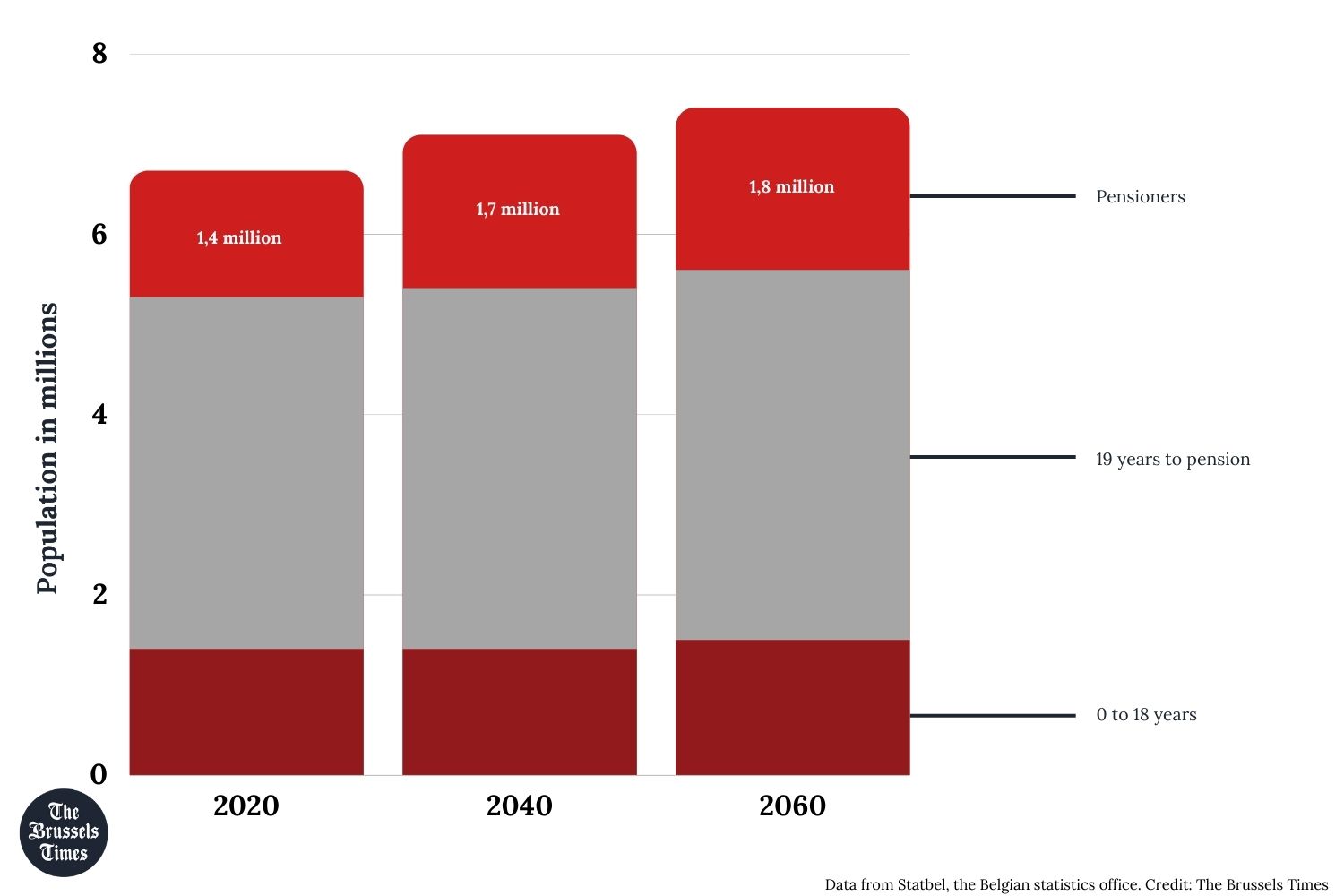The imbalance between the active, working population and the number of older people is increasing in Flanders, as is the gap between care demand and care supply. This is raising fears of an ethical fiasco, for which the sense of urgency on a policy level is missing.
In the Dutch-speaking region, childcare, general practitioners and dentists are not accepting new patients due to a lack of staff – what can be understood as a symptom of the issues facing the elderly care sector, Expertise Centre Dementia Flanders has warned. Already, staff shortages in residential care homes are putting pressure on the system in Flanders, and the severity of this issue will only worsen.
"Unless a plan of action is developed now, there is a demographic time bomb coming at us that will crash elderly care," Jan Steyaert, scientific collaborator at the Expertise Centre Dementia Flanders, warned in an article on the website Sociaal.net. It is written from the perspective of dementia care, but the "conclusion also applies to elderly care as a whole," he argued.
Long-announced 'silver tsunami'
A recent Dutch report showed care and welfare are already under pressure due to an ageing population and the increase in the number of chronically ill people. "The crucial question is: does this also apply to Flanders?" Steyaert asked.
The latest population figures suggest it does, By 2040, the share of elderly people in the region will increase by one-fourth, and by 35% by 2060. At the same time, the active working population will increase by barely 3%, and by 5%, respectively.
"The pressure on elderly care will only increase without thorough and quick adjustments. Maintaining quality will become difficult and room for innovation and improvement will become smaller. Thus, the needs of residential care home residents will only increase," he stressed.
Meanwhile, residential care centres are becoming increasingly unaffordable, and the average pension is already insufficient to cover these costs. "Those with insufficient financial reserves or no children to help pay will be forced to live longer at home or turn to social services."
The pressure on the system goes further than care, as the ageing population also has a negative effect on keeping pensions affordable and sustaining the overall labour market.
As society only finds itself at the beginning of the long-announced 'silver tsunami' — the combination of people getting older and the number of births dropping is a phenomenon in its infancy — pressures are likely to further mount. "The future for the vast majority of older people is therefore very worrying."
Long-term plan needed
While fragmented efforts are being made to increase staffing in the care sector, Steyaert said a more global approach is needed. He proposed several steps forward, including for a healthcare economist to analyse what works and what is scalable for the whole of the region to achieve growth in care provision.
Meanwhile, he argued against the most cited non-sector-specific measure taken by the government: raising the retirement age to 67. While "working longer means more people in the labour market" Steyaert stressed that informal carers are already much less available to look after their caring parents. "That will only increase."
Flanders is also looking to increase the employment rate, but again, the group it is looking to active includes many informal carers. "Employing this group as active workers is not feasible because we will need them more and more in the future." He argued much more is needed to respond to the shortage of care staff in the future.
"It worries me that I hear all kinds of people in positions of responsibility complaining about the shortage of care staff, but hear no bundled plans or proposals from them. We need to make choices, yes, but which ones? 2040 is really not that far away."
Related News
- Brussels elderly population more at risk of poverty, vulnerability deepening over time
- Some 20,000 elderly people in care homes will receive extra money to pay expenses
His solution includes collaboration with other centres of expertise and partners across sectors. "We are not going to be able to stop this hurricane, but today we can anticipate it." Preventative healthcare plays a key role in limiting growth in care, however, Flanders currently invests little in this.
Better use of low-tech tools, such as alarm buttons for when an elderly person falls and GPS trackers, can also help alleviate the workload of care staff, but there is still a certain stigma around using these.
Steyaert lamented that a longer-term plan is missing in Flanders, which lacks a council specifically focussing on the consequences of an ageing population. "Current policymakers will have to embed longer-term solutions. Waiting is no longer an option, if not we are heading for failure," he concluded.


